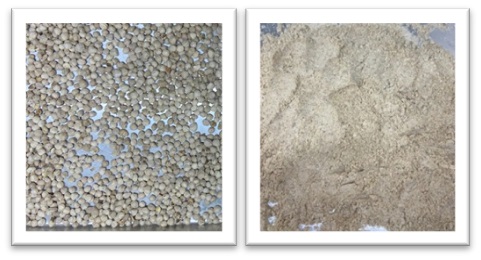In Vitro and In Silico Assessment of Methanol Extract from Moringa oleifera Seeds as α-Amylase Inhibitor
Abstract
Diabetes mellitus (DM) is a metabolic disorder characterized by hyperglycemia, posing a global health threat. Current diabetes treatments often rely on synthetic drugs with side effects, prompting the search for safer natural alternatives. This study investigated the secondary metabolic compounds in methanol extract from M. oleifera seeds and evaluated their antidiabetic activity. The α-amylase enzyme was analyzed to determine optimal incubation time, pH, and temperature. The antidiabetic activity was assessed via α-amylase inhibition using in vitro and in silico methods. Phytochemical screening revealed the presence of flavonoids, alkaloids, and tannins in the extract. Optimal enzyme conditions were 30 minutes of incubation, pH 6.9, and 25 °C. The extract showed the highest activity at 15% concentration with 67.94% inhibition and an IC50 of 15.38%, compared to acarbose with 41.76% inhibition and an IC50 of 17.89%. In silico analysis indicated that 9-octadecanoic acid (Z) methyl ester had a lower inhibition constant and binding energy (2.67 mM and -3.51 kcal/mol) than acarbose (15.72 mM and -2.46 kcal/mol), suggesting a higher enzyme affinity. These findings suggest that M. oleifera seeds contain compounds with potential as antidiabetic agents.
Downloads

Copyright (c) 2024 Hasnah Natsir, Rugaiyah A Arfah, Abdur Rahman Arif, Muhammad Nadir, Anita Anita, Sartika Sartika, Nur Rahmi, Aulia Karimah

This work is licensed under a Creative Commons Attribution-NonCommercial-NoDerivatives 4.0 International License.
Authors who publish with this journal agree to the following terms:
- Copyright on any article is retained by the author(s).
- The author grants the journal, the right of first publication with the work simultaneously licensed under a Creative Commons Attribution License that allows others to share the work with an acknowledgment of the work’s authorship and initial publication in this journal.
- Authors are able to enter into separate, additional contractual arrangements for the non-exclusive distribution of the journal’s published version of the work (e.g., post it to an institutional repository or publish it in a book), with an acknowledgment of its initial publication in this journal.
- Authors are permitted and encouraged to post their work online (e.g., in institutional repositories or on their website) prior to and during the submission process, as it can lead to productive exchanges, as well as earlier and greater citation of published work.
- The article and any associated published material is distributed under the Creative Commons Attribution-NonCommercial-NoDerivatives 4.0 International License.





_copy1.png)










